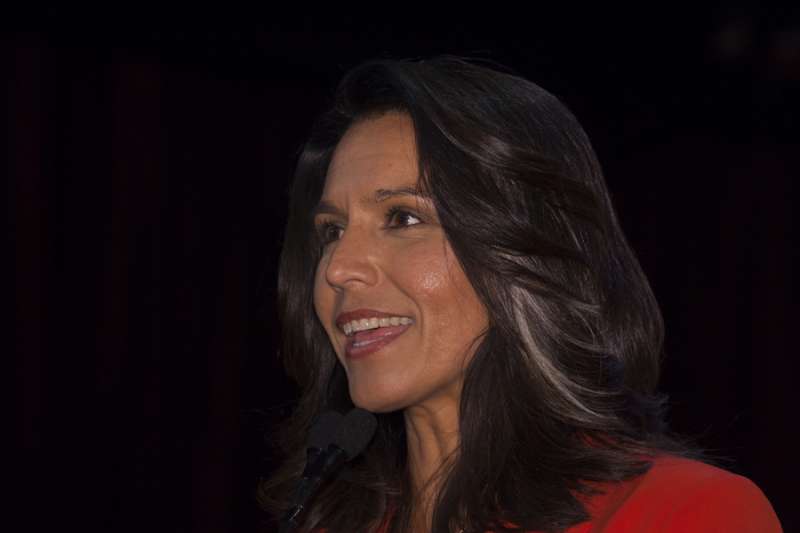Democratic lawmakers are divided over questions some see as a religious litmus test applied to candidates for the federal bench. The debate has turned into a war of words between members of Hawaii’s Congressional delegation
“We cannot and will not tolerate prejudicial treatment of those with whom we disagree, any more than we would tolerate such treatment of those with whom we agree,” Rep Tulsi Gabbard (D-HI) wrote in a Jan. 8 op-ed for The Hill.
Gabbard accused senators screening judicial candidates of “religious bigotry” and warned against legislators “weaponizing” questions of personal faith.
At least two judicial candidates in recent months have faced questions about their Catholic faith during the federal confirmation process. Legislators from both parties have said some of those questions have gone too far.
Gabbard’s op-ed referenced the 2017 confirmation hearing of Judge Amy Coney Barrett, who, the the congresswoman wrote, was treated inappropriately by members of the Senate Judicial Committee.
“No American should be told that his or her public service is unwelcome because ‘the dogma lives loudly within you’ as Sen. Dianne Feinstein (D-Calif.) said to Amy Coney Barrett during her confirmation hearings.”
Article 6 of the Constitution states that “there shall be no religious test” for any candidate seeking public office.
In December, CNA reported that Senators Mazie Hirono (D-HI) and Kamala Harris (D-CA) raised concerns about a judicial nominee’s Catholic faith and membership of the Knights of Columbus. The issues were raised in questions put to Brian C. Buescher, an Omaha-based lawyer nominated by President Trump to sit on the United States District Court for the District of Nebraska.
In her questions, Hirono said that “the Knights of Columbus has taken a number of extreme positions” by supporting basic Catholic beliefs regarding abortion and marriage.
The Knights of Columbus has nearly 2 million members. Last year they carried out more than 75 million hours of volunteer work and raised more than $185 million for charitable purposes.
Harris described the Knights as “an all-male society” which is “opposed a woman’s right to choose” and against “marriage equality.” In the light of his Catholic faith and membership of the Knights, both senators questioned Buescher’s ability to apply the law fairly and objectively as judge.
Referring to Hirono and Harris’s questions to Buescher, Gabbard wrote that while she personally opposed his candidacy for a judgeship, she “stands strongly against those who are fomenting religious bigotry, citing as disqualifiers Buescher’s Catholicism and his affiliation with the Knights of Columbus.”
“While I absolutely believe in the separation of church and state as a necessity to the health of our nation, no American should be asked to renounce his or her faith or membership in a faith-based, service organization in order to hold public office,” Gabbard wrote.
“The party that worked so hard to convince people that Catholics and Knights of Columbus like Al Smith and John F. Kennedy could be both good Catholics and good public servants shows an alarming disregard of its own history in making such attacks today.”
Hirono hit back Tuesday at her fellow Hawaiian Democrat’s comments. A spokesman for the senator said Gabbard “based her misguided opinion on the far-right wing manipulation of these straightforward questions.”
Last month, a spokesperson for the Knights of Columbus said the senators’ conduct recalled past periods of anti-Catholic discrimination.
“Our country’s sad history of anti-Catholic bigotry contributed to the founding of the Knights of Columbus, and we are proud of the many Catholics who overcame this hurdle to contribute so greatly to our country,” Kathleen Blomquist told CNA.
“We were extremely disappointed to see that one’s commitment to Catholic principles through membership in the Knights of Columbus—a charitable organization that adheres to and promotes Catholic teachings—would be viewed as a disqualifier from public service in this day and age.”

